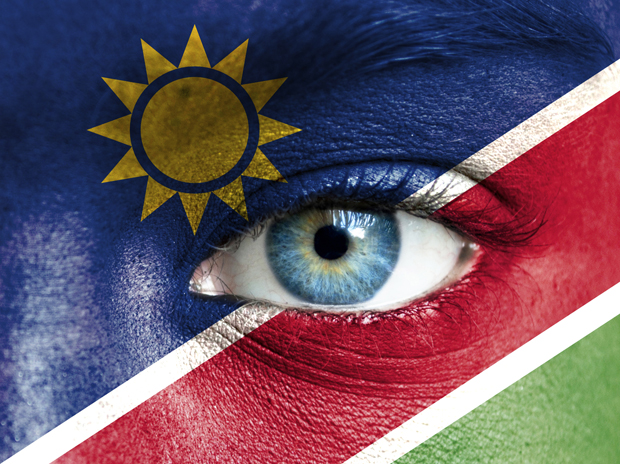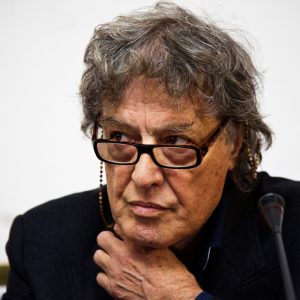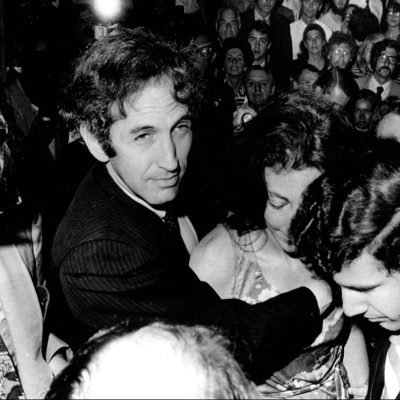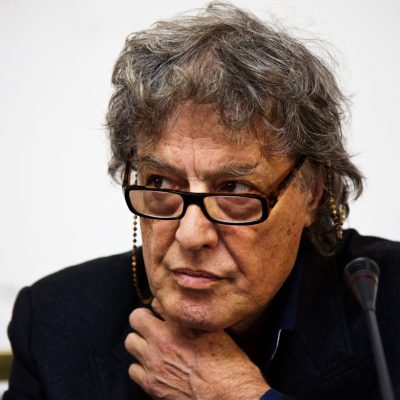9 Sep 2014 | Namibia, News and features, Politics and Society

(Image: Aleksandar Mijatovic/Shutterstock)
Controversy surrounded the Namibian parliament's recent decision to make 40 amendments to the country's constitution without consulting civil society or the wider public. The dispute resulted in a journalists being verbally and physically attacked live on air by a government party councillor.
The Namibian Constitution Third Amendment Bill was passed on 27 August, and provides for an enlarged parliament and a vice president, an increase in the number of president's appointees to legislature from six to eight and making the primer minister an optional role, among other things. But critics believe the bill was rushed through by the ruling party Swapo, to accommodate its old guard who are at risk of being edged out of the national council due to the implementation of 50/50 gender representation. The changes were put in place ahead of the general election, set to take place on 29 November.
After revelations by the media that proposed amendments were going to be pushed through parliament, civil society groups rallied to form a "My Constitution, My Decision" group which called for widespread public consultations on the changes. Supported by the Southern African Development Community Council of Non-Governmental Organisations (SADC-CNGO), the group called for the withdrawal of the bill.
"The bill, which proposes 40 changes to the constitution, has far-reaching consequences for the configuration of the Namibian legislature and the lives of the citizens at large" said Secretary General Boichoko Ditlhake ahead of the passing of the legislation. He added that "to rob citizens and civil society of the space for participation... is to rob them of their determination to defend their constitution".
Namibian prime minister, Hage Geingob, Swapo's candidate for the presidency in national elections, dismissed the concerns of media and civil society groups. He accused some individuals of being "failed politicians", that they risked jeopardising the peace, and claimed that Swapo had the mandate to make the changes without consultations with the people. Geingob also condemned opposition parties claiming they hadn't been consulted either, saying there had indeed been meetings to ask them what they thought.
Feelings ran high as Geingob, supported by the head of Namibia's Law Reform Development Commission (LRDC), Sacky Shanghala, defended the controversial amendments. He argued, among other things, that an enlarged parliament of 104, compared to the previous 72, would make for more effective governance.
As the prime minister planned to address a hastily-convened public meeting in Windhoek's Katutura township on the changes, a Swapo councillor, Ambrosius Kandjii, barged into the studios of the Namibia Broadcasting Corporation (NBC) on August 13. Kandjii verbally and physically attacked a producer, who was live on air, accusing her of being a "liar" and supporting the opposition Rally for Democracy and Progress (RDP). He also insisted the radio station belonged to Swapo and not to the public.
The producer in question is reportedly too afraid to take the matter further and is said to be worried about her safety and that of her children. The Media Institute of Southern Africa (MISA) issued a statement calling for an investigation into the incident by the NBC Director General as well as to ban the councillor from entering the studios again. They also asked Namibian President Hifikepunye Pohamba, to hold Kandjii accountable and condemn the action. There is currently no indication that the authorities have responded to these calls.
The hardline attitude of Geingob, the man widely belived to be Namibia's president-in-waiting, comes in contrast to his earlier stance of being more accommodating of civil society. In his doctoral thesis, published recently, he said "One thing is sure, if attempts are made by influential persons to undermine the constitution, backed by the ruling party having two-thirds majority in the National Assembly, the constitution can be wrecked," adding that the survival of the constitution in part depends "on the evolution of society and social groups, and, in turn, civil society".
This article was posted on 9 Sept 2014 at indexoncensorship.org
17 Apr 2012 | Africa, Index Index, minipost
Freelance journalist John Grobler has won a libel case against Namibia's ruling Swapo party. On Friday (13 April), the party was ordered to pay Grobler 300,000 Namibian dollars (27,300 GBP) in damages in connection to defamatory statements made about him on the party's website in September 2009. This is the first time that Swapo itself --- rather than an individual party officeholder --- has been held legally accountable over libelous statements made on a party platform. It is also the first time that online content has led to someone being held liable for defamation in the country.
23 Jul 2009 | Index Index, minipost
China's Propaganda Department has ordered media and news websites to censor reports about a corruption case with links to President Hu Jintao’s son. Nuctech, a Chinese company that until 2007 was headed by Hu's son Hu Haifeng, is alleged to have bribed a Namibian company in order to sell airport security scanners to Namibia. Read more here






